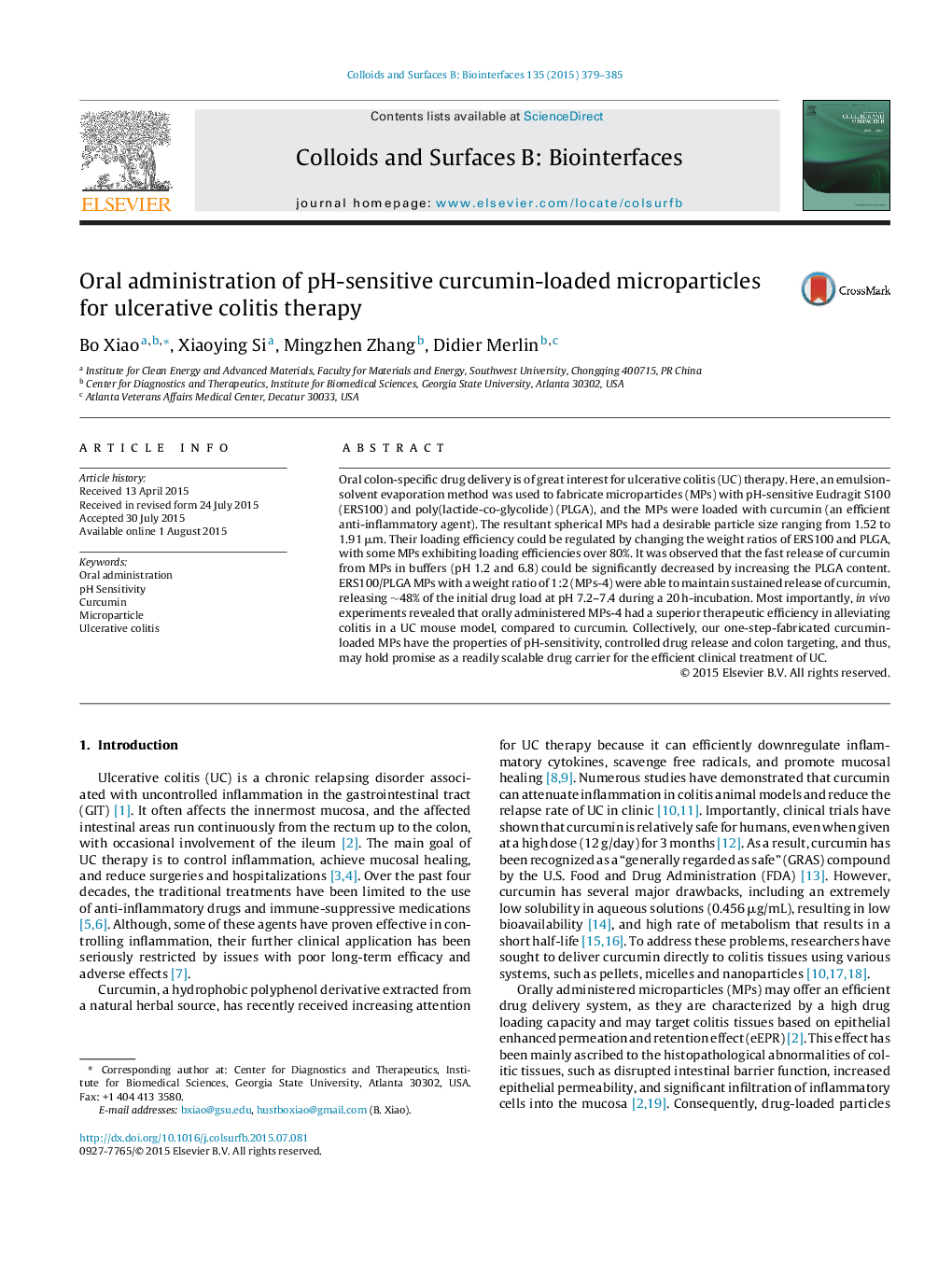| Article ID | Journal | Published Year | Pages | File Type |
|---|---|---|---|---|
| 599255 | Colloids and Surfaces B: Biointerfaces | 2015 | 7 Pages |
•Eudragit S100 (ERS100)/poly(lactide-co-glycolide) (PLGA) microparticles (MPs) were fabricated as curcumin carriers for ulcerative colitis (UC) therapy.•ERS100/PLGA MPs with weight ratio of 1:2 (MPs-4) have desired sustained release profile of curcumin.•MPs-4 exhibited much better therapeutic efficacy for UC treatment compared with free curcumin.
Oral colon-specific drug delivery is of great interest for ulcerative colitis (UC) therapy. Here, an emulsion-solvent evaporation method was used to fabricate microparticles (MPs) with pH-sensitive Eudragit S100 (ERS100) and poly(lactide-co-glycolide) (PLGA), and the MPs were loaded with curcumin (an efficient anti-inflammatory agent). The resultant spherical MPs had a desirable particle size ranging from 1.52 to 1.91 μm. Their loading efficiency could be regulated by changing the weight ratios of ERS100 and PLGA, with some MPs exhibiting loading efficiencies over 80%. It was observed that the fast release of curcumin from MPs in buffers (pH 1.2 and 6.8) could be significantly decreased by increasing the PLGA content. ERS100/PLGA MPs with a weight ratio of 1:2 (MPs-4) were able to maintain sustained release of curcumin, releasing ∼48% of the initial drug load at pH 7.2–7.4 during a 20 h-incubation. Most importantly, in vivo experiments revealed that orally administered MPs-4 had a superior therapeutic efficiency in alleviating colitis in a UC mouse model, compared to curcumin. Collectively, our one-step-fabricated curcumin-loaded MPs have the properties of pH-sensitivity, controlled drug release and colon targeting, and thus, may hold promise as a readily scalable drug carrier for the efficient clinical treatment of UC.
Graphical abstractFigure optionsDownload full-size imageDownload as PowerPoint slide
